Tag: Region 3
Innovative program exposes underserved students to CTE
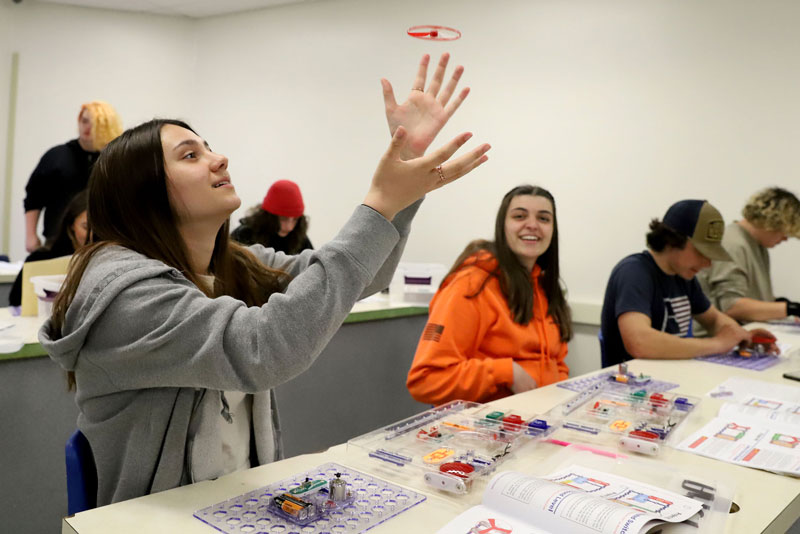
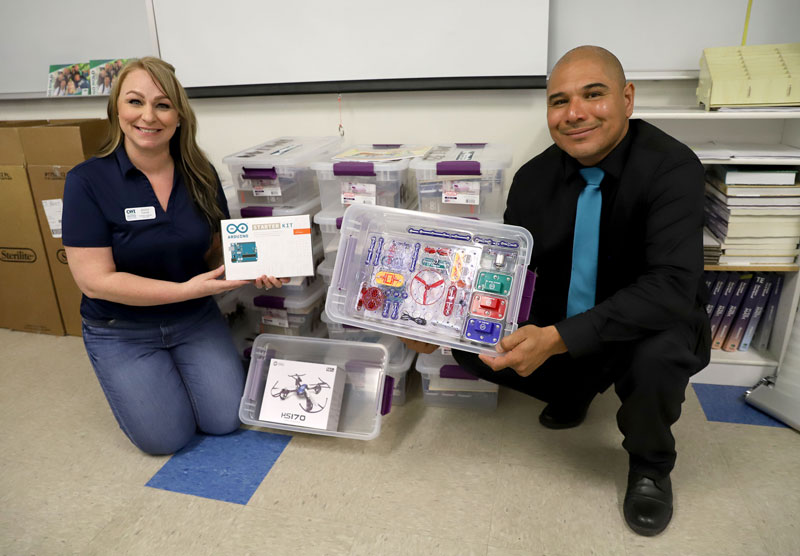
Jessica Concie and Oster Hernandez, transition coordinators for the College of Western Idaho’s (CWI) Dual Credit department, have long believed in the power of CTE. So, when Concie discovered CWI’s Center for New Directions had assembled a plastic trunk filled with a lesson plan and some hands-on activities using an included circuit board to introduce students to CWI’s Mechatronics program, she thought it would be a perfect way to spark the interest of students enrolled at alternative high schools in the Treasure Valley.
“Oster and I have a soft spot for these kids because they’re so often overlooked. A lot of them are just trying to get through high school; they’re not thinking about what’s next or what could be,” said Concie. “CTE programs tend to work really well for these students because they’re so hands-on, and students can clearly see how what they learn connects to careers.”
With the support and approval of their supervisor, Concie and Hernandez created the Pop the Trunk initiative. To expose these students to some of the 41 CTE programs offered at CWI, Concie and Hernandez approached CTE faculty about creating a week’s worth of lesson plans to introduce potential students to their CTE program. The lesson plans would be accompanied by trunks—one per student—filled with equipment and activities to support the lessons. Materials were purchased using grant money, and the program is available at no cost to students or teachers.
“CTE programs tend to work really well for these students because they’re so hands-on, and students can clearly see how what they learn connects to careers.”
Jessica Concie

Pop the Trunk launched during the 2021-2022 school year with three programs: Mechatronics, Unmanned Aerial Systems, and Drafting. Concie and Hernandez reached out to alternative high schools throughout the Treasure Valley to let them know the program was available.
“We sent out emails to see who was interested, then we dropped off a trunk with the teacher so they could see the lesson plans and play with the trunks. If they liked what they saw, we’d deliver the trunks so they could use them with their students,” said Hernandez.
Teachers and students at Meridian Academy in Meridian, Initial Point High School in Kuna, Eagle Academy in Eagle, and Middleton Academy in Middleton liked what they saw. Now in its second semester, Pop the Trunk continues to grow in scope and popularity. Additional trunks for Automotive Technology, Diesel, and Welding are being developed, and CTE faculty who help develop the trunks and the teachers at the alternative high schools will receive a $500 stipend for their help in developing and using the program starting the spring 2023 semester. In addition, other technical colleges, such as the College of Southern Idaho, have reached out to mirror the program elsewhere in the state.
“It’s been hugely successful because it allows students without access to a lot of resources or support to see what’s possible,” said Hernandez. “We’re looking at expanding the program to rural schools, too.”
Long term, Concie and Hernandez would love to see technical colleges nationwide create their own Pop the Trunk programs to help underserved and overlooked student populations discover CTE. In fact, they were accepted to give a presentation on the initiative at the ACTE Vision Conference in Las Vegas in December 2022.
“I hope schools in other states see the program is working. If we can do it in Idaho, we can do it anywhere,” said Concie. “This is a fantastic way to expose students to what CTE is all about who otherwise wouldn’t have that opportunity.”
Relationships, certifications lead to 100% job placement for Diesel Technology program
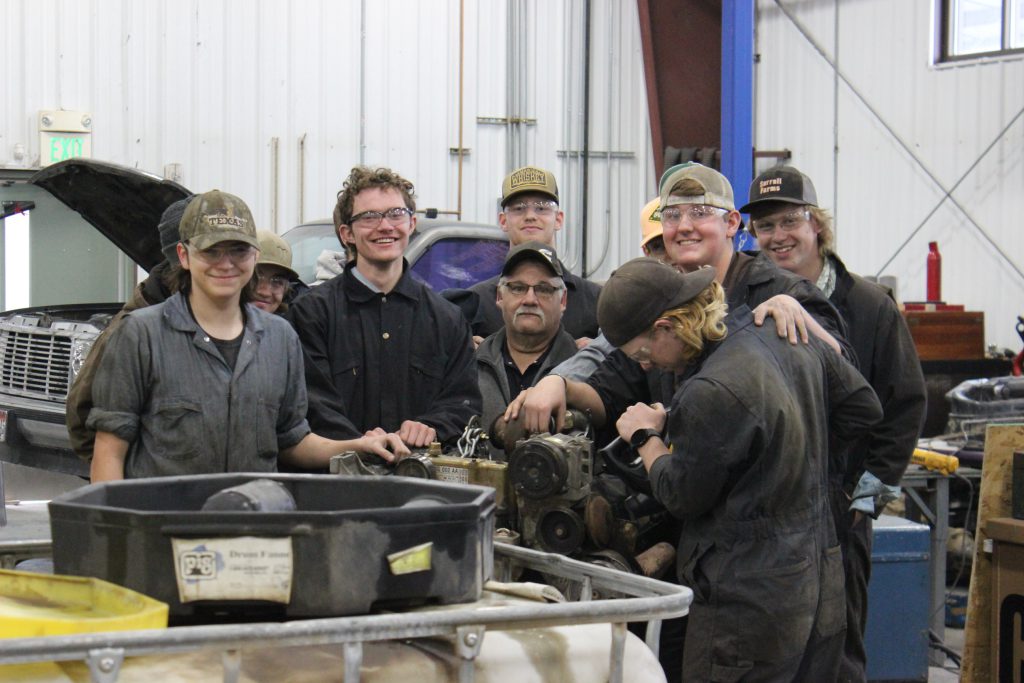
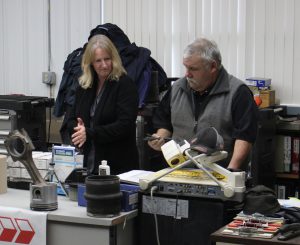
Diesel mechanic John Montana knows firsthand how difficult it is to find skilled workers, especially for in-demand professions. In fact, his inability to find and hire qualified workers is what drove him to become a teacher in the first place.
“I couldn’t hire decent help,” said Montana. “I was training new employees on the job anyway for about 10 or 11 years, so when Canyon-Owyhee School Service Agency’s (COSSA) old diesel technology teacher retired in 1999, I figured I’d give teaching a try.”
Though Montana started teaching part-time, he soon discovered he loved working with the kids and was teaching full-time by his second year. In the two decades since, Montana has cultivated relationships with about a dozen farm implement companies, several of whom employ Montana’s former students. These relationships benefit students and businesses alike—in many ways.
First, industry partners like John Deere, Kenworth, Peterbilt, Agri-Service, Caterpillar, and Mountain View Equipment are always willing to drop off equipment and provide opportunities for students to develop their skills via job shadowing and internships. They know they’ll be able to hire skilled workers from the talent pool Montana produces, so they’re willing to help his students develop career readiness skills by conducting mock job interviews or reviewing student resumes.
Second, industry partners provide additional feedback about new workers’ skills and what needs to change or be updated in the program to prepare students for their careers. This also helps ensure Montana himself stays current.
“That’s one positive thing about these kids staying local; they’re an excellent reference for me,” said Montana. “I don’t get to work out in the field like I used to, so I bounce stuff off my former students all the time. I know I can call any of them up and ask, ‘What have you run across?’ or ‘We’ve got this truck in here that’s doing this and this; have you seen anything like that?’”
Most importantly, these relationships have resulted in 100% job placement over the past 14 years.
“Because the program teaches to NATEF standards, students can earn industry-recognized certifications in electrical engines, transmissions, engine repair, brakes, and preventative maintenance,” said Montana. “Students can also earn their OSHA 10 card and SP2 Safety and Pollution Prevention training certificates while still in high school. That means students may not need a lot of on-the-job training after they graduate.”
This is a huge advantage to not only students but their employers as well.
“If there are 50 applicants for a job and you have these certificates—especially the safety certificates—you’ll move to the top of the list because it cuts down on the number of hours an employer has to train you, and you can get right to work,” said Montana.
Patricia Frahm
COSSA’s principal, Patricia Frahm, says the importance of this foundation can’t be overstated. “If a student walks out of a CTE program with these certifications, they can walk into a job immediately, and if they decide to go on to college, it gives them a skill they can use to pay their way through school,” said Frahm. “They also learn work ethic and accountability in the process—things that can help them for the rest of their lives.”
 Official Government Website
Official Government Website